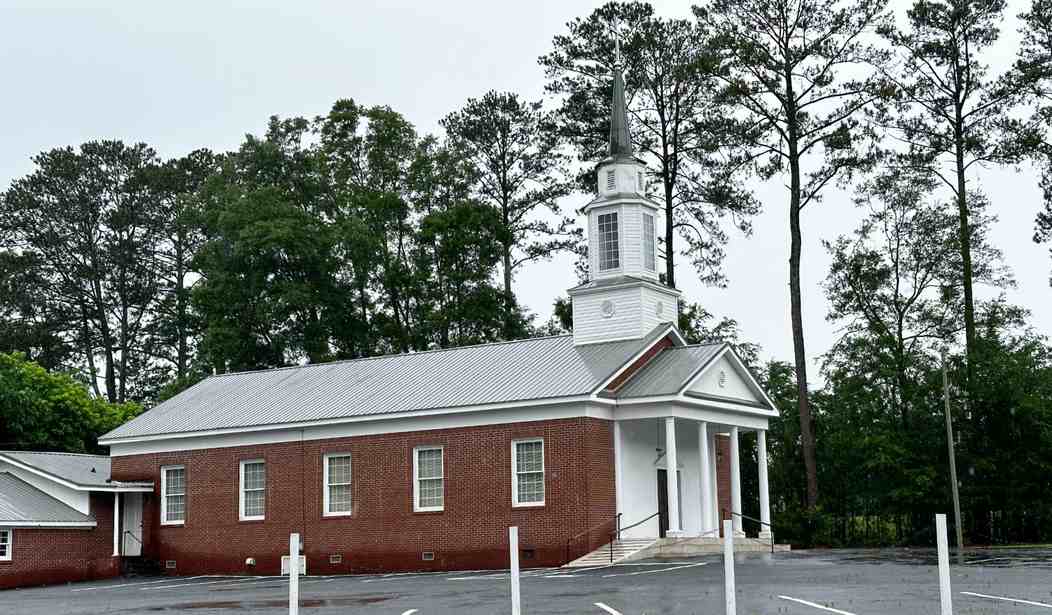A couple of weeks ago, I posted my response to Bernie Sanders’ speech at Liberty University. I pointed out that the God of the Bible is not a socialist, in spite of Senator Sanders’ intimations to the contrary.
Boy, did I touch a nerve! For about a week, I fought off Sanderites on social media, most of whom insulted me in the most uncreative of ways (sticks and stones, folks). A few of them saw fit to judge me — wait, I thought we weren’t supposed to do that — and inform me that I’m not a proper Christian. They questioned my faith because I don’t agree with a non-Christian’s co-opting of a couple of verses from the inspired Word of the God (that I’ve followed nearly my whole life) in order to justify wealth redistribution, punitive taxation and labyrinthine regulation.
One woman called me a Pharisee, patently revealing her ignorance of what exactly a Pharisee is. Here’s a hint: it’s not someone who refuses to read socialism into the Bible when it’s not there. Another lady asked me why there was still poverty if churches and individuals “did such a good job.” My answers were (1) they don’t always do the job they should, and (2) those government programs aren’t exactly runaway hits, either.
Others condescendingly told me I needed to reevaluate my faith because I’m not in favor of rendering more than what is Caesar’s unto Bernie. I also heard from the militant atheists who informed me that I was wrong to consult the Almighty God in the first place.
But by and large, these Christian Sanderites threw scriptures at me in their attempts to justify socialism in Jesus’ name. The passage of scripture that these folks threw at me the most was Acts 4:32-35:
32 All the believers were united in heart and mind. And they felt that what they owned was not their own, so they shared everything they had. 33 The apostles testified powerfully to the resurrection of the Lord Jesus, and God’s great blessing was upon them all. 34 There were no needy people among them, because those who owned land or houses would sell them 35 and bring the money to the apostles to give to those in need.
It’s a beautiful picture of God’s people taking care of each others’ needs. But to go for some clarity here, it was not socialism. These acts of sharing didn’t happen by mandate from a government entity; there wasn’t even a denomination or diocese telling the nascent community of believers what to do. These new Christians were taking care of their own, and their actions were willful, spontaneous and joyful — three things that socialism is not.
As a staff member at Eastridge Church, we have been going through the Book of Acts together, looking at a chapter in depth every week. Last week, we talked about Acts 4, and we all noticed that the sharing took place under very specific circumstances. The early believers, who called themselves “followers of The Way,” began to bear each others’ burdens only after they had begun to seek the Holy Spirit more boldly.
Let’s back up in Acts 4, before the passage that so many use to try to justify socialism. The Sanhedrin, the Jewish ruling council, tried the apostles Peter and John for healing a man, and the two young church leaders amazed the members of the council with their eloquence:
13 The members of the council were amazed when they saw the boldness of Peter and John, for they could see that they were ordinary men with no special training in the Scriptures. They also recognized them as men who had been with Jesus. 14 But since they could see the man who had been healed standing right there among them, there was nothing the council could say. 15 So they ordered Peter and John out of the council chamber and conferred among themselves. 16 “What should we do with these men?” they asked each other. “We can’t deny that they have performed a miraculous sign, and everybody in Jerusalem knows about it. 17 But to keep them from spreading their propaganda any further, we must warn them not to speak to anyone in Jesus’ name again.” 18 So they called the apostles back in and commanded them never again to speak or teach in the name of Jesus.
19 But Peter and John replied, “Do you think God wants us to obey you rather than him? 20We cannot stop telling about everything we have seen and heard.”21 The council then threatened them further, but they finally let them go because they didn’t know how to punish them without starting a riot. For everyone was praising God 22 for this miraculous sign—the healing of a man who had been lame for more than forty years.
23 As soon as they were freed, Peter and John returned to the other believers and told them what the leading priests and elders had said. 24 When they heard the report, all the believers lifted their voices together in prayer to God:
“O Sovereign Lord, Creator of heaven and earth, the sea, and everything in them— 25 you spoke long ago by the Holy Spirit through our ancestor David, your servant, saying, ‘Why were the nations so angry? Why did they waste their time with futile plans? 26 The kings of the earth prepared for battle; the rulers gathered together against the lord and against his Messiah.’ 27 “In fact, this has happened here in this very city! For Herod Antipas, Pontius Pilate the governor, the Gentiles, and the people of Israel were all united against Jesus, your holy servant, whom you anointed. 28 But everything they did was determined beforehand according to your will. 29 And now, O Lord, hear their threats, and give us, your servants, great boldness in preaching your word. 30 Stretch out your hand with healing power; may miraculous signs and wonders be done through the name of your holy servant Jesus.”
31 After this prayer, the meeting place shook, and they were all filled with the Holy Spirit. Then they preached the word of God with boldness. Acts 4:13-31
The fellowship of believers decided to take care of their own as a direct result of their seeking a closer relationship with God. Notice how they didn’t pray to find a way to rid the world of poverty — rather, they prayed for boldness in speaking the Word of God and for God to work miracles.
The early church wasn’t looking for a government program or a redistribution of wealth from a faceless bureaucracy. They weren’t trying to achieve some measure of charity, as least not as the world sees it. They were looking to be a bold witness to the powerful, healing, redemptive message of Jesus. They were looking to be obedient to the leading of the Holy Spirit in their lives. And what they achieved was a genuine sense of family and community that was more like a block party than a Great Society.
Jesus told his disciples in the Gospels, “You will always have the poor among you, and you can help them whenever you want to” (Mark 14:7). I believe that part of His reason for telling them this was because poverty will be an issue in this world as long as the majority of people choose not to seek Him with all their hearts.
The only surefire way to end poverty has nothing to do with social programs or anything that any political system can devise. The things that individuals, non-profits and churches do to help the poor are wonderful, but the way to end poverty once and for all is for God’s people to devote themselves to following Him wholeheartedly and boldly, making more disciples, and allowing the Holy Spirit to do the work that only He can do.










Join the conversation as a VIP Member